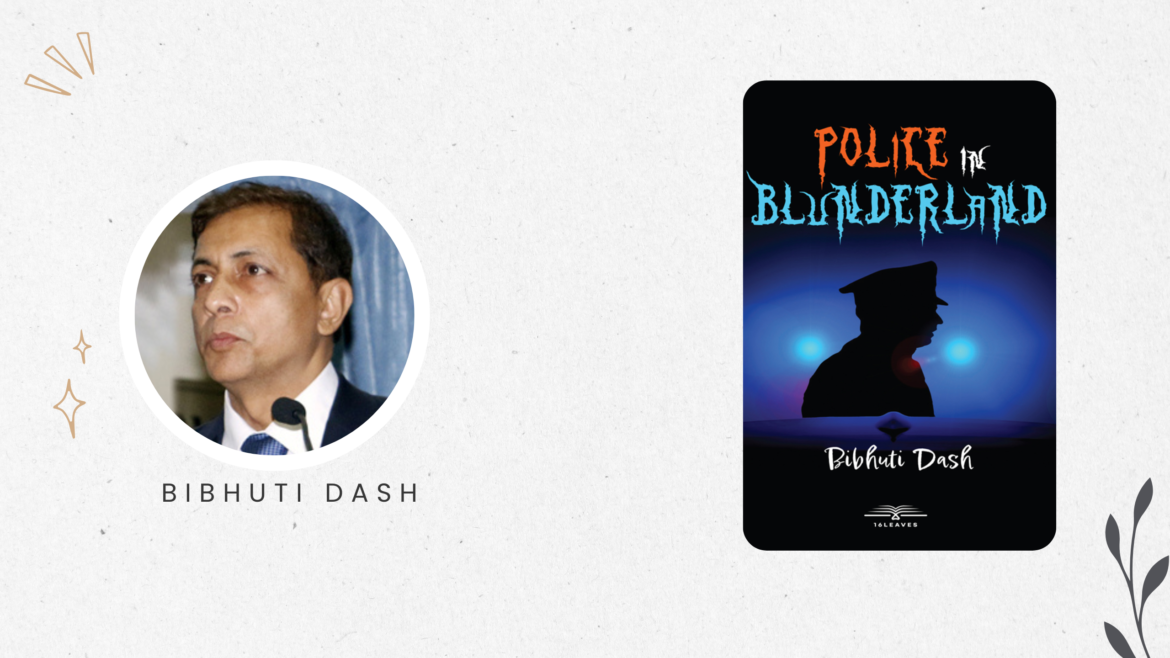Police in Blunderland, written by Bibhuti Dash, is all about life experiences and incidents at work including policing, a corporate career, United Nations deputations, social and societal issues, and anything which lends itself to a lighter take within a serious or not-so-serious paradigm.
So, is the book about the brave new world or fire-and-brimstone?
Well, let’s find out in our interview with the author…
What kind of experiences did you carry in your job?
I worked in the corporate sector (both private companies and PSU) and government jobs. These were vastly different experiences. However, I found that most job holders tend to take their jobs, position, and so forth too seriously, especially in the Police. I find SPs, when they are away from duty station even for a day’s leave, instead of attending to the personal work they have taken the leave for, calling up to check the progress of cases, untoward incidents, and so forth. I’m convinced that heavens don’t fall if one has an objective detachment from the job and sees the funny side of it … and allocates the requisite time to his/her personal life as well.
Is your book about courage or cowardice?
The book is about courage; it’s also about cowardice. Mostly, it’s about the incongruous side of many things we tend to take for granted. An extreme example of this was the case where two constables continued to be detailed to guard a park bench for decades even though the fresh paint they were guarding for had dried out several times over and even decayed to nothingness over time.
Are there any flaws in policing?
Everybody agrees that policing in India needs major reforms, and urgently. However, the people who have the responsibility to bring about the reforms are invested in retaining the status quo because it suits their purposes. However, even if major surgery may take time, effort, and probably a mass movement, certain matters can be redressed even now by the top leadership, for example, mandatory registration of FIRs, preferably online, even in false cases, making all police documentation electronic and transparent; exemplary punishment for wrongful arrest; adopting a “crime-to-criminal” rather than a “criminal-to-crime” approach, that is, arrest only after collecting sufficient evidence which will stand up in a court of law, and so on.
What were you thinking when you were offered a bribe as a senior officer?
Amused, more than anything else. Here’s the thing. I joined the government service after having done an MBA from one of the only three IIMs then and serving in the corporate sector for a while. Financially, I had taken a huge hit to join the service, purely out of choice. With that as the backcloth, a bribe offer of Rs. 50 …
What kind of feelings did you carry when you had to travel to Patna for your first assignment?
Well, at the age of 19, it was all excitement and adventure. It was also a whole new life in Patna after Delhi. In the long evenings after work, with nothing much to do, I started my tentative attempts at penning down my thoughts and experiences, purely to amuse myself. Now, some of that is in a published book.
In the Purulia arms drop case, was it too late when the authorities realized the misstep at Madras?
If you read the piece, the situation was retrieved just in the nick of time. However, it would have been better if the rogue aircraft was detained at Madras airport itself. It would have been even better if the aircraft had stuck to its original flight plan of refueling at Calcutta airport because we were waiting there to surround and arrest as soon as it landed. Too many if only’s …
What made you feel that your ‘Sub Divisional Police Officer Training’ was incomplete and a vital piece of it was still missing?
In any job, a lot rides on the loyalty factor – the loyalty of an employee to the organization, the loyalty of subordinate staff to the senior officer, and so on. In Police, it’s critically important because it’s a uniformed, command service and an officer is expected to obey the legal command of a senior without question. However, this is possible only when there is loyalty and trust. What I learnt on the job was that the outward show of loyalty might be very different from what will happen when the rubber meets the road and there is a critical situation, say, a firing needed to disperse a mob and execution needed to be carried out within microseconds…



